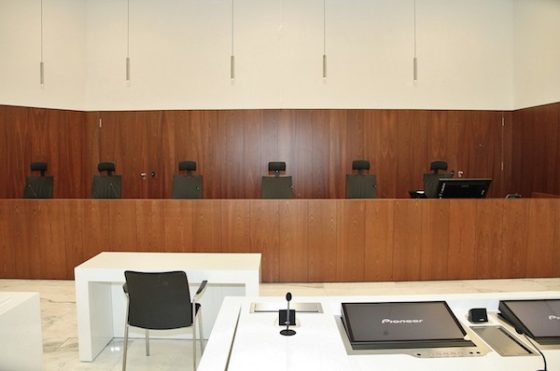Prosecutors in 39 cases given anonymity as security concerns increase


Dozens of prosecutors have been given anonymity in records of court proceedings in the last two years, as concerns about security in the justice system increase.
A special committee was established following the murder of Derk Wiersum, a lawyer acting for a crown witness in a high-profile drugs case known as the Marengo trial, in Amsterdam in September 19.
Since then prosecutors in 39 cases have been granted some form of anonymity, including nine cases in which lawyers are not allowed to be filmed or sketched.
But some defence lawyers have voiced concern that concealing the names of legal officials compromises the principle of open justice. ‘We are not blind to concerns about security, but it must not lead to invisible trials,’ lawyer Ronald van der Horst said during a recent hearing.
Van der Horst is acting for one of the suspects in the murder of journalist Peter R. de Vries in Amsterdam last July.
De Vries was an adviser to Nabil B., the same crown witness that Derk Wiersum represented until he was shot dead on his doorstep. The killers of Wiersum, who were each sentenced to 30 years in prison last October, reportedly obtained his home address from public chamber of commerce (KvK) records.
Restricted identity
The committee established since his murder can issue orders to restrict the identification of justice officials such as prosecutors and judges, by blanking out their names in public court documents or banning publication of photos and sketches.
Diederik Greive, regional head of the prosecution service (OM) in Noord-Nederland, who assesses requests for anonymity, told NOS that the decision was based on whether there was a substantial threat to the official involved.
‘We also look at the contents of the case and the criminal network we are dealing with. Are there previous instances of threats being made, including towards other people?’
While anonymity has mostly been granted in trials linked to the criminal underworld, it has also been used in other cases, such as that of a woman accused of making threats to Jaap van Dissel, the public health agency RIVM’s infectious disease specialist, during the coronavirus pandemic.
Rule of law
Peter Schouten, who took over as lawyer for Nabil B. from Derk Wiersum, explicitly rejected an offer of anonymity. ‘I think it’s important that we don’t box ourselves in,’ he said. ‘Living in a state based on the rule of law is not free or painless.’
Schouten, who worked closely with Peter R. de Vries, said: ‘Peter would not have approved of making officials and experts anonymous.’
Greive said that although official records were being anonymised, the principle of open justice was still paramount. ‘We don’t judge people in back rooms in the Netherlands,’ he said. ‘We stand in the courtroom and everybody can see us there. We look the suspect and the defence straight in the eye.’
Thank you for donating to DutchNews.nl.
We could not provide the Dutch News service, and keep it free of charge, without the generous support of our readers. Your donations allow us to report on issues you tell us matter, and provide you with a summary of the most important Dutch news each day.
Make a donation